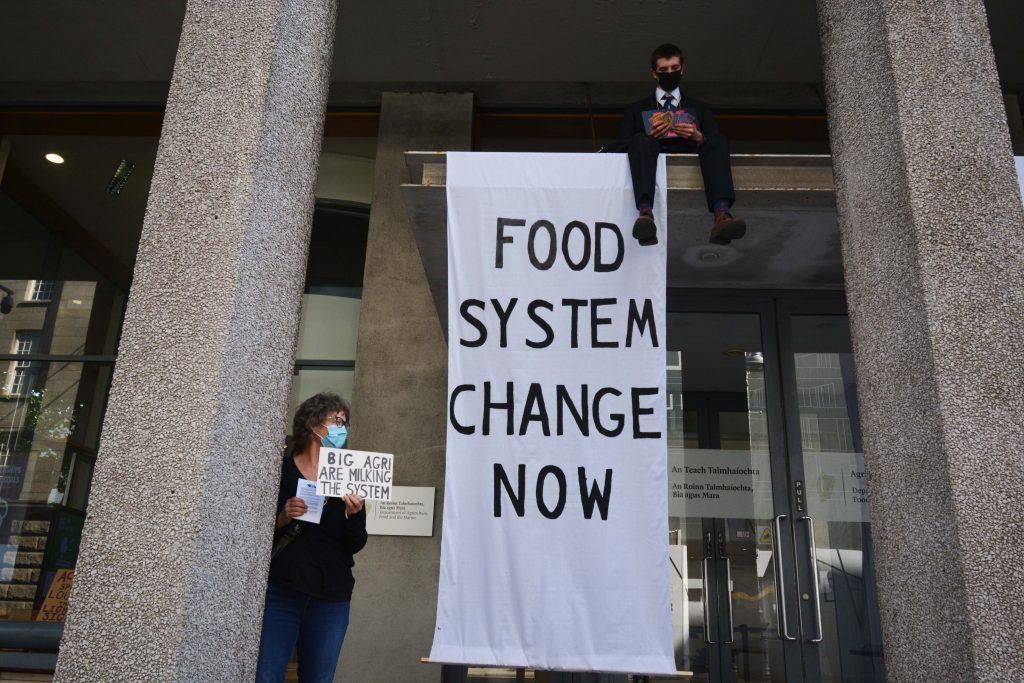Affiliated Extinction Rebellion group call for a radical change to agriculture

14 September 2020
Members of an affiliated Extinction Rebellion group gathered outside the Department of Agriculture today and called for a radical change to Irish and European agricultural policy.
Animal Rebellion protesters clad in costume climbed atop a platform over the front door of the Department and unfurled banners while calling for an overhaul of the Common Agriculture Policy.
The current CAP regime gives preference to large landowners and intensive livestock farmers, leaving more environmentally friendly practices critically underfunded, according to the group.
A new CAP is currently being drafted for 2021 to 2027, and according to the European Union, 40 per cent of it’s overall budget and at least 30 per cent of the Maritime Fisheries Fund will be geared towards climate action.
However, the new policy will have a reduced budget which means there are less available funds to allocate.
Irish beef and dairy farmers are “left dependent” on the CAP for a decent wage due to meat plants controlling the price of produce by a lack of competitiveness between them, they went on to say.
Additionally, they argue, the system fails to meet Irish nutritional needs, as it remains a net importer of food energy, creating vulnerabilities to changes to international markets and interruptions to food supply.

In order to protect food sovereignty and the environment, Animal Rebellion stress that a transition to a plant-based system is necessary.
“Animal foods are associated with many negative health outcomes, while dietary change (particularly reducing beef and dairy consumption) has been shown to reverse these trends,” an Animal Rebellion spokesperson said.
“The responsibility should not be placed solely on the individual to change. A new system must be achieved through a real just transition where no-one loses their livelihoods, but are supported throughout the process.
Traditional farming practices are not responsible for the climate crisis, and small farmers shouldn’t be made to suffer,” they added.
Agriculture’s climate and economic challenges
To date, agriculture is Ireland’s largest emitter of greenhouse gases, and it’s contribution is growing.
According to the 2020 Central Statistic Office’s environmental indicators, agricultural emissions accounted for over a third of the state’s total figure for 2018.
The trend marks Ireland as an outlier within the EU, as member states’ agricultural emissions average out at 10 per cent.
In addition to its environmental sustainability issues, non-commercial farms have faced mounting challenges to their economic well being.
According to Social Justice Ireland, roughly half of family farms require off-farm income to remain economically sustainable and their at-risk-of-poverty rate has increased steadily over the course of the past decade.
Additionally, projected farming financial gains are dependent on the expansion of dairy production, which would run contrary to climate policy measures.
[x_author title=”About the Author”]







